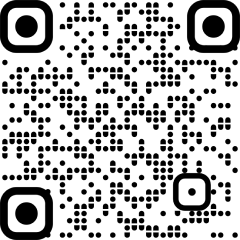
Remarkable 9.2-kg Tumour Removed from Ovarian Cancer Patient by AIIMS Doctors, ET HealthWorld
New Delhi: Doctors at All India Institute of Medical Sciences (AIIMS) successfully performed a surgery to remove a 9.2-kg tumour from a 49-year-old woman with ovarian cancer, which is expected to increase her life expectancy remarkably.
Without the surgical intervention, the patient would have survived about six months.
Professor MD Ray from the department of onco surgery at AIIMS, explained that extracting a tumour of this magnitude presents significant difficulties as multiple organs are affected, particularly the gastrointestinal and urinary systems.
He said that the patient recovered well, with an anticipated survival extension of at least 10 years. Following the surgery on Dec 2, she was discharged on Dec 9.
Initially diagnosed with stage one granular cell tumor (GCT), a rare, slow-growing ovarian tumour originating from sex cord stromal cells, the woman underwent staging laparotomy in Dec 2011 at AIIMS Delhi’s gynaecology department. Post-operative assessment confirmed stage I disease. After being under observation, the patient discontinued follow-up for five years.
In 2016, she returned to the medical oncology clinic with symptomatic recurrence. A tumour mass excision was attempted in 2017 in the gynaecology department but remained incomplete due to complications including multiple serosal tears.
She then received six cycles of Paclit XL and Carbon Platinum chemotherapy, achieving 18 months of progression-free survival. Follow-up imaging revealed small abdominal and pelvic deposits, leading to conservative management under observation. The patient again discontinued follow-up for three years after the initial recurrence.
She subsequently came to the Institute Rotary Cancer Hospital (IRCH), AIIMS’s facility, in Oct 2024, displaying severe symptoms including a substantial abdominal mass, pain, constipation, post-meal vomiting, dependence on a liquid diet and substantial weight reduction of 15 kg over three months.
Dr Ray stressed that whilst some cancer patients discontinue follow-up care, consistent monitoring remains essential for disease management. The medical team noted several complications: poor performance status (scale two), severe anaemia (6 grams per decilitre haemoglobin), reduced albumin (2.8 grams per decilitre), and compression of vital structures including the urinary bladder, sigmoid colon and ureters.
For such an advanced condition, chemotherapy and radiotherapy would serve only as palliative care. This treatment option would have been viable if the patient received care at a distant facility. However, in this recurring case, surgery remained the only potentially curative option. Such procedures are exclusively available at specialised hospitals with comprehensive oncological facilities and complete medical teams, including anaesthesia specialists.
Dr Ray highlighted that patients should not consider any complex abdominal procedures, including those involving abdominal masses, relapses or recurring conditions, as inoperable.
Visit: Valley Vision News







